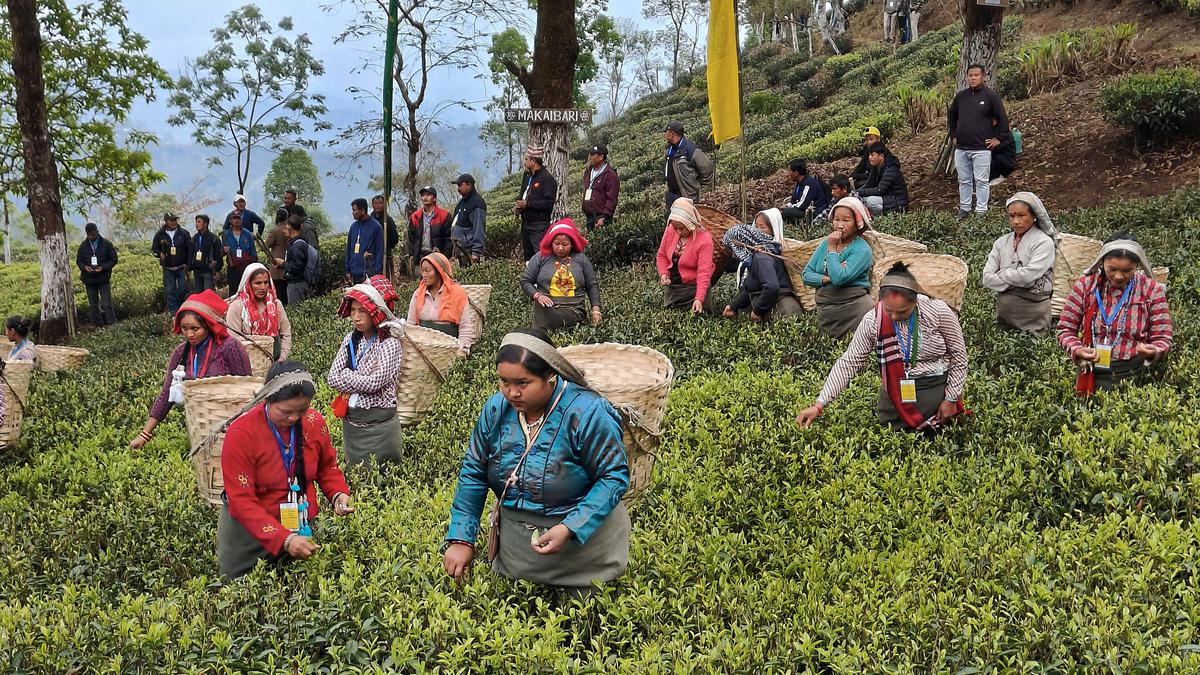
Climate change taking toll on Darjeeling tea gardens and workers
The Hindu
Behind the serenity of Darjeeling’s famed tea gardens with gentle slopes stretching green and pine trees seemingly touching the skies, a crisis unfolds quietly, almost unseen — climate change that is affecting production, the flavour of the tea and the health of hundreds of workers.
Behind the serenity of Darjeeling’s famed tea gardens with gentle slopes stretching green and pine trees seemingly touching the skies, a crisis unfolds quietly, almost unseen — climate change that is affecting production, the flavour of the tea and the health of hundreds of workers.
With no data yet, the impact of climate change is as intangible perhaps as the mist that rolls in ever so often. But it is being felt every day, say activists and experts working in the area.
At the nub of the issue is the use of pesticides and their hydra impact. With extreme weather events becoming more frequent and unpredictable, tea estate owners are desperate to protect their yields.
Explained | Why is the Darjeeling tea industry in crisis?
However, the intensified use of chemical interventions takes a toll on health of those who work in the gardens, has a bearing on the delicate flavour of the tea leaf and also on yields.
Varsha*, a 34-year-old tea garden worker, doesn’t have a string of degrees, isn’t privy to decision-making in the estate but knows only too well why day to day life has become so difficult.
She suffers from breathing difficulties, eczema on her hands and feet, and persistent heaviness in her chest. Despite her many struggles, she perseveres at her job of picking tea leaves.











